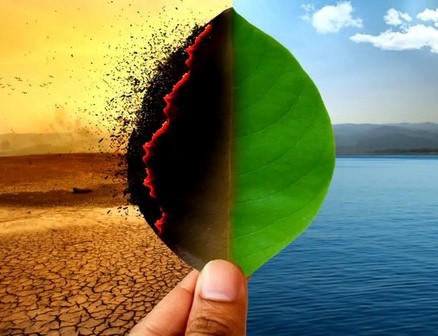Kategori : ELECTRICITY ENERGY NEWS, ENERGY AGENDA NEWS, ENERGY EFFICIENCY NEWS - Tarih : 28 October 2021
According to a new report by the Euro-Mediterranean Center for Climate Change (CMCC), the resulting climate impacts will cause irreversible devastation in G20 countries unless urgent action is taken to reduce emissions.
The first study of its kind, the G20 Atlas of Climate Impacts compiles scientific projections of how climate impacts could have implications for the world’s wealthiest countries in the coming years. The research finds that in the high-emissions scenario, exponential climate impacts can cause devastating  damage to the G20.
damage to the G20.
The research shows that rising temperatures and intense heatwaves can cause severe droughts, threaten water supplies for agricultural activities, cause large-scale casualties and increase the likelihood of deadly fires. For some countries, these results can be materialized as follows:
– By 2050, heat waves are likely to last at least ten times longer in all G20 countries and 60 times longer in Argentina, Brazil and Indonesia.
– By 2050, a reduction in rice and wheat production in India could result in economic losses of up to 81 billion euros and a 15% decrease in farmer incomes.
– By 2050, bushfires, coastal flooding and hurricanes in Australia could increase insurance costs and cause a $611 billion decline in property values.
The report states that unless immediate action is taken to reduce carbon emissions, GDP losses due to climate damage in G20 countries will increase every year and this increase will be at least 4% per year until 2050. This rate may exceed 8% by 2100, in this case, there will be a loss of 2 times the economic loss of the G20 due to Covid-19. Some countries will be hit much worse, for example Canada could lose at least 4% of its GDP by 2050 and over 13% (more than €133 billion) by 2100.
“From droughts, heat waves and sea level rise to threats to dwindling food supplies and tourism, these findings show how severely climate change will hit the world’s largest economies unless we act promptly,” said Donatella Spano, coordinating the report at CMCC. “We know that only by tackling emissions and taking swift action to adapt to climate change can we limit the dire impacts of climate change. At the next summit, we urge G20 governments to listen to the science and put the world on the path to a better, more equitable and more stable future.”
Every G20 country is at risk from the effects of climate change, ranging from coastal erosion to the spread of tropical diseases. According to research:
– In the high emissions scenario, deaths from extreme heat in Europe could rise from 2,700 to 90,000 per year by 2100.
– By 2050, catchable fish could fall by a fifth in Indonesia, destroying the livelihoods of 100,000 people.
– With sea level rise, coastal infrastructure could be destroyed in 30 years. In the high emissions scenario, Japan could suffer losses of €404 billion and South Africa €815 million by 2050.
However, the faster the G20 countries adopt low-carbon policies, the less the climate impacts will be multiplied and the more manageable they will be. If global temperature rise is limited to 2°C, the cost of climate impacts could fall, corresponding to just 0.1% of the G20’s total GDP by 2050 and 1.3% by 2100. In the Paris Agreement signed in 2015, countries agreed to keep global temperature rise “well below 2 degrees Celsius”. However, with the current policies and commitments, the world is on the path of a temperature increase of about 3 degrees.
Laurence Tubiana, one of the architects of the Paris Agreement: “The window of opportunity for action is closing fast. G20 countries have to make an urgent decision while promoting the economic recovery after Covid-19 on the one hand and preparing their climate plans before COP26 on the other. Either the global economy is protected and low-carbon “There will be a rapid transition to a future, or the global economy will be derailed by polluting policies. The time has come to transform the G20’s economic agenda into a climate agenda.”
For the Report and Country Data: https://www.g20climaterisks.org/





